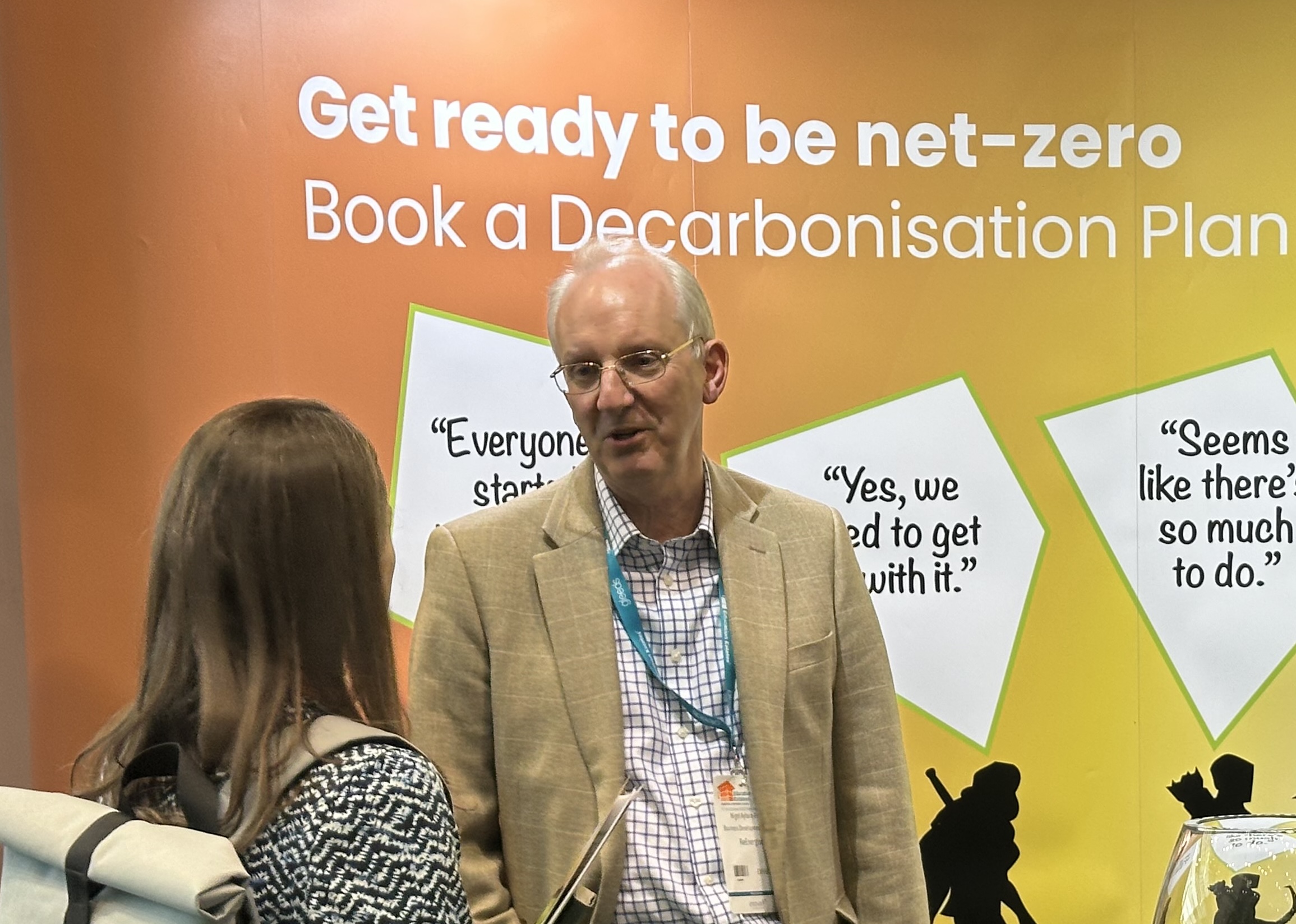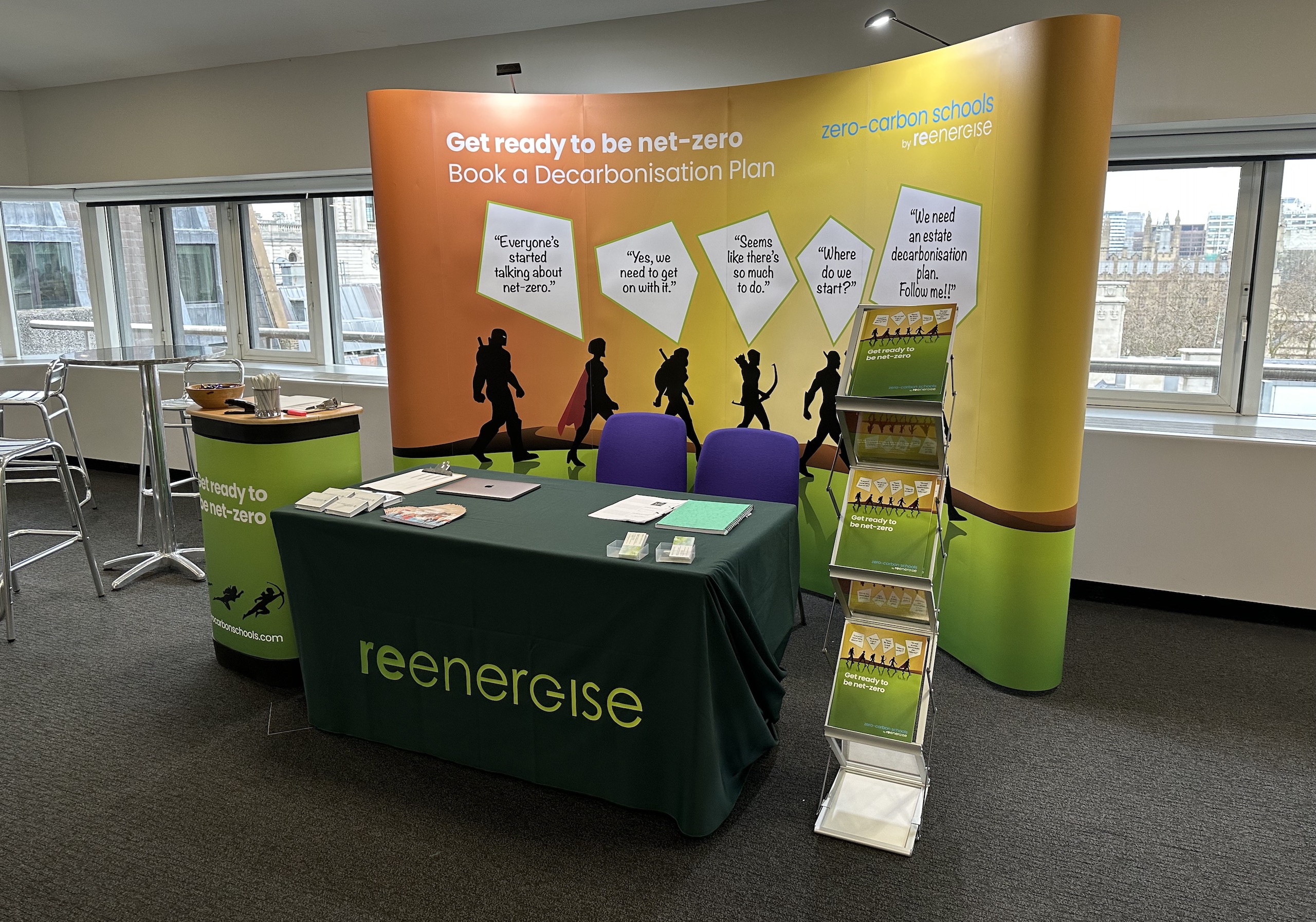Nigel Aylwin-Foster describes what the future net-zero system is probably going to look like, and which technologies will be key in his article ‘And the rest is Hydrogen’, featured in the Bursars Review, published by the Independent Schools Bursars Association.
Salix Finance have announced Phase 4 of the Public Sector Decarbonisation Scheme (PSDS4) will open for applications on 9th October!
The Public Sector Decarbonisation Scheme (PSDS) is the main grant-funding programme for phasing out fossil fuel heating plant and improving energy efficiency in public sector sites, including schools and colleges. The aim of the scheme is to reduce direct carbon emissions from public sector buildings as far as possible.
The scheme is run by Salix Finance and PSDS4 provides capital funding from 2025/26 to 2027/28.
Applications can be made for the funding of low-carbon heating systems (e.g. air source heat pumps and grounds source heat pumps). Where suitable, applications can also include fabric improvements and energy efficiency measures to reduce the heat or electrical demand of the buildings due to be heated by the proposed low-carbon system.
For a building to be eligible, it must have a fossil fuel heating plant that is 10 years or older. It is also important that the project has not already started and would not take place without PSDS funding.
Applicants are responsible for contributing the cost of a like-for-like replacement of the existing fossil fuel system or a minimum of 12% of the total project cost.
The scheme is open for grant applications from 9th October to 25th November, so time is of the essence! Grant funding will be allocated based on application grant carbon cost to ensure that the maximum carbon emissions are reduced. Funding will be awarded by the end of May 2025 and projects must be delivered by 31st March 2028.
PSDS is by far the best funding route for school estate decarbonisation. If you think your school, college or multi-academy trust could benefit from low carbon heating systems and energy efficiency improvements, then this could be the scheme for you. For free of charge support with your grant application, get in touch with us as soon as possible at: https://www.reenergisegroup.com/contact-us/
Podcast: What to expect at the ISBA panel session on ‘How to go green without going into the red en route’ on the ISBA Bursarcast
In the first 12 minutes of this episode of the Independent Schools’ Bursars Association (ISBA) Bursarcast, Nigel summarises Tuesday’s panel discussion on how schools can get to net-zero affordably.
Discussion points will include what can be done in the short-term to reduce schools’ operating costs, the long-term financial implications of removing fossil fuel plant and how with the correct planning and management decarbonisation can be affordable.
Listen to the ISBA podcast in full here to find out who’s on the panel, Nigel’s insights on recent trends on net-zero for schools and what one thing you should bring to get the most out of the session!
ReEnergise to Attend AGBIS Annual Conference on 18th March
For our first exhibition of 2024, we will be attending the Association of Governing Bodies of Independent Schools (AGBIS) Annual Conference on Monday 18th March at the Queen Elizabeth II Centre in London.
We had a successful time at the show last year and it was good to talk to so many school governors who were enthused about getting their schools to net-zero. We are looking forward to seeing everyone again this year.
If you are attending the conference and interested in finding out how your school can get to net-zero, find us upstairs in the Cambridge/Windsor Suite for a chat (and a chocolate).
To find out more about the AGBIS Annual Conference, click here.
Public Sector Decarbonisation Scheme Phase 3c: Portal to Open at 2pm on 7th November
Following technical difficulties on 10th October, Salix Finance will be reopening the Phase 3c Application Portal for all applications on Tuesday 7th November, 2023 at 2pm
As published in July, the Department for Energy Security and Net Zero has made £230 million available in 2024/25 with a similar budget for 2025/26 to be announced this autumn.
To find out more about Phase 3c of the Public Sector Decarbonisation Scheme, click here.
If you are interested in submitting an application to Phase 3c of the Public Sector Decarbonisation Scheme, and would like help with your application, please contact us at ReEnergise. We can provide technical support and advise on crafting the language for the application form, increasing your chance of success.
Public Sector Decarbonisation Scheme: Phase 3c Announced by Salix Finance (PSDS3c)
The Public Sector Decarbonisation Scheme provides grants for public sector bodies to fund heat decarbonisation and energy efficiency measures. Phase 3c has made £230 million available in 2024/25 with additional budget for financial year 2025/26 to enable projects to be delivered over two years. The application window for Phase 3c is expected to open in October 2023. (Date to be confirmed shortly.)
To find out more about Phase 3c of the Public Sector Decarbonisation Scheme, click here.
If you are interested in submitting an application to Phase 3c of the Public Sector Decarbonisation Scheme, and would like help with your application, please contact us at ReEnergise. We can provide technical support, plus advice on crafting the language in the various application boxes, increasing your chance of a successful application.
Podcast: Nigel Demystifies Estate Decarbonisation on the ISBA Bursarcast
In a recent episode of the Independent Schools’ Bursars Association (ISBA) Bursarcast, Nigel was invited to take part in a discussion about school estate decarbonisation. The 35-minute podcast aims to dispel common myths and misconceptions, help bursars understand what to prioritise when looking at net-zero as a whole, and highlight the biggest carbon emitters found on the typical school estate.
Throughout the discussion, what became clear is that the most practical first step to decarbonising a school’s estate, is to procure an estate decarbonisation plan (EDP). This holistic approach to net-zero, allows a school to identify its carbon emitters and financially plan for infrastructure upgrades, with particular attention given to heat projects which are the most effective in carbon reduction, but the most expensive. This part of the ReEnergise risk-reduction process ensures that a school will only proceed on projects when it makes sense to do so, which ensures no regrets later down the line.
To find out more, listen to the ISBA podcast in full here:
Phase 4 Public Sector Low Carbon Skills Fund: Portal to Open at 2pm on 26th April
Salix Finance has announced that Phase 4 of the Public Sector Low Carbon Skills Fund (Phase 4 LCSF) will be open for applications on Wednesday 26th April at 2pm. The Department for Energy Security and Net Zero has set aside £17 million with the goal being to best prepare public sector bodies for the next round of the Public Sector Decarbonisation Scheme, later in the year.
For this round of LCSF, there are three funding options:
- Funding to develop or improve a heat decarbonisation plan incorporating any output outlined in the scheme criteria section.
- Develop standalone detailed design(s) from pre-existing heat decarbonisation plan(s).
- A combination of options one and two above, to develop or improve a heat decarbonisation plan(s) and develop a standalone detailed design(s) from a pre-existing heat decarbonisation plan(s).
The HDP Purpose
As per Salix’s announcement, the purpose of acquiring an HDP is as follows, “[an HDP] will help organisations to think more strategically about decarbonisation opportunities, and work through the planning lifecycle up to and including the development of detailed project proposals that are cost effective, aligned with their organisational decarbonisation strategy, and ready to be funded, including through an application for other grant funding schemes.”
The Funds
In an effort to provide the opportunity for funding to be allocated to a wider range of projects, a funding cap has been introduced, dividing the £17 million into three grant value ranges (including an overall grant value cap of £1,000,000):
- 34% of funding for projects up to £100,000.
- 38% of funding for projects between £100,001-£500,000.
- 28% of funding for projects between £500,001-£1,000,000.
To date, grants have been used to pay for plans in full, meaning no client contribution is required. This remains the case for Phase 4 LCSF.
Key Dates
- Early April – Applicants to register on Salix LCSF4 website. (We can register as well, as consultants. Needs to be done on an individual basis. But we can’t submit grant apps on behalf of clients).
- 26th April at 2pm – Portal opens. It is critical that applications are submitted as soon after 2pm as possible otherwise the chances are the budget will already be oversubscribed. Therefore, early prep is essential well before 26 April.
- From June – Grant Offer Letters (GOL) being issued.
- By 14th July – All GOLs awarded.
- 28 March 2024 – All grants to be spent.
In Autumn 2023, PSDS3c is expected to be similarly announced, with the main focus being heat decarbonisation, but the scheme will also pay for related capital works that are necessary to enable the heat decarbonisation to be done cost-effectively.
If you are interested in submitting an application to Phase 4 LCSF, please contact us at ReEnergise. We will provide free technical support to grant applications, plus advice on crafting the language in the various application boxes, increasing your chance of a successful application.
To read the full Salix Finance Phase 4 LCSF announcement, click here.
ReEnergise Attends the AGBIS Annual Conference and the GSHPA Members Day
Doubling up for the first shows of the year: two events, two days, and two ReEnergise employees. At the end of March, Nigel and Ollie attended both the AGBIS Annual Conference and the inaugural GSHPA Member’s Day.
At the AGBIS Annual Conference, Nigel and Ollie had the opportunity to speak with many independent school governors who were keen to learn how their respective schools could reduce their carbon emissions. It was very encouraging to see how engaged school governors are on such an important topic, and many were interested to understand how a school starts its net-zero journey. They were therefore able to discuss decarbonisation plans, and why this is the best place to start. Nigel held a breakout session where he delivered the first presentation of his three-part series titled ‘How to be a Net-Zero Savvy Governor.’ Part 2 is coming up soon, and the ReEnergise team is looking forward to holding a practical session on the 11th May at St George’s, Weybridge.
The GSHPA Members Day was equally enlightening, with various panels discussing the intricacies of ground source heat pumps. Across 4 talks, they heard from experts who spoke on the best application of these systems. Nigel was part of a discussion panel and shared his insight into why some schools are wary of heat pumps: how horror stories from other schools can result in unfortunate misunderstandings. In reality, a ground source heat pump can bring plenty of long-term savings if implemented correctly and appropriately.
This is where ReEnergise comes in. We can assist with seeing the wood for the trees and ensure that your school makes the right decisions when it comes to decarbonisation. Our team can guide you through every step of the process, from the initial benchmarking and the technically choreographed estate decarbonisation plan, right up to project managing the installation.
Overall, it was a week full of insightful conversations and interesting talks. It will be great to see everyone attending the Education Estates Net-Zero Conference next month!
The April 2023 Energy Bills Discount Scheme. What do Schools Need to Know?
Out with the old, in with the new. On the 1st April, the Energy Bill Relief Scheme (EBRS) ended, and non-domestic energy contracts have automatically been moved onto the newly announced Energy Bill Discount Scheme (EBDS). This means that any school who signed their energy contract on/after the 1stDecember 2021 were already be on the EBRS and therefore have transitioned to the EBDS. Unlike its predecessor, the EBDS will instead run for 12 months (until March 2024), rather than 6.
However, despite their similar names, the EBDS is much less akin to the outgoing EBRS.
The important thing to remember is that this is no longer an energy price cap, rather a discount on energy unit rates. This does unfortunately mean that the EBDS is far less supportive for schools. Despite this, it is still important to understand the new scheme in order to budget effectively in the new financial year. Here is how the EBDS works:
From April, your electricity bill discount is now limited to 1.961p per kWh, with a minimum price threshold of 30.2p per kWh, and your gas bill discount, limited to 0.697p per kWh, with a price threshold of 10.7p per kWh. If your unit rate is less than these thresholds, you will not be eligible for the discount.
It is important to note that the final per unit price paid by non-domestic customers will differ since it will also reflect other costs such as network charges and operating costs, plus the impact of competition between suppliers.
To find out more, visit: https://www.gov.uk/guidance/energy-bills-discount-scheme








